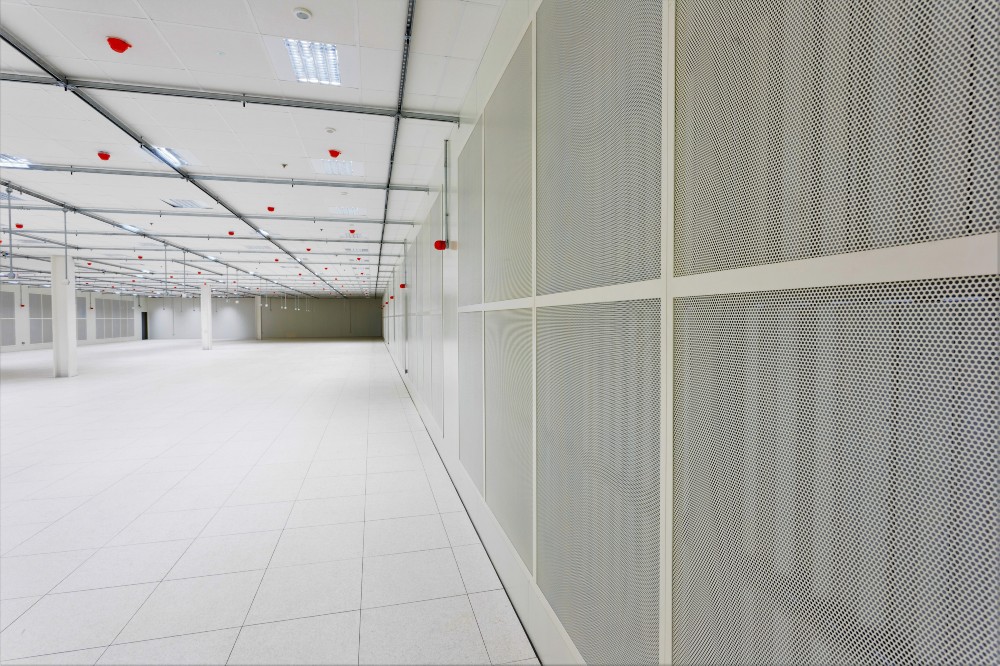Darren Watkins, managing director at Virtus Data Centres explores why colocation is going to win big over the next decade.
It appears that the demise of colocation may have been greatly exaggerated. While some anticipated colocation would lose out to cheaper cloud computing solutions, analysts are now universally predicting its continued growth into the next decade, thanks to ongoing digital disruption and the leveraging of artificial intelligence (AI) and machine learning.
Organisations have found that by moving on-site IT infrastructure to a colocation provider, they can reduce costs, scale up or down, benefit from more uptime and mitigate security and compliance risks – all without any detrimental effect on performance. And today’s high-speed network connections between a company’s premises and their data centre ensures rapid access to servers and storage, just as if they were installed on their own site.
Powering budget and growth
On-site servers can be one of the biggest money drains for a business. From employing expert data centre managers and staff, to powering servers and ensuring they’re kept at a steady temperature, on-site data centres demand plenty of budget – often preventing organisations from investing in other growth areas.
By colocating infrastructure in an external data centre, businesses can circumnavigate many of these costs while retaining the resources they need to grow. It can help businesses free up physical space for more people, more storage or more facilities, enabling organisations to save on the costs of expanding to new premises – as well as enjoying all of the additional benefits that come from moving their IT infrastructure off-site.
Colocation also offers the high-grade infrastructure needed by the diverse industries that use high density computing. For example, the cloud environment used by companies in the media industry must be able to cope with ultra-high-density applications, which media companies need for digital rendering due to the high compute power needed to layer visual and audio files. The necessary power and associated cooling for the IT hardware to support such applications just isn’t reliably available in today’s office buildings – and that’s where colocation comes in.
Ensuring reliability, uptime and optimum data security
Reliability has always been one of the biggest arguments in the build vs. buy debate. Businesses rely on critical applications and core software systems in order to operate at peak performance. But – it’s not as simple as is appears. Power outages happen, UPS backups run dry, servers can fail, and your technicians may fall victim to human error. However, by colocating to a shared data centre, companies benefit from a professionally managed environment and an expert team whose job it is to keep facilities up and running.
Maximising environmental benefits
Data centres require a tremendous amount of energy that can be harmful to the environment. Data centres in the US alone are projected to consume approximately 73 billion kWh in 2020 – and efficiency and sustainability is a universal challenge that transcends companies, geographies, and workloads.
But, as well as cutting down the number of individual data centres, organisations that embrace colocation providers also benefit from their commitment to continued innovation in this arena. In today’s climate, it’s crucial for colocation providers – both as individual businesses and a collective industry – to continue to work towards environmental sustainability.
Colocation in a cloud-based industry
When it comes to threats to colocation, there is no question that the rapid growth of cloud is shaking up the industry. But, despite existing misconceptions, the cloud and colocation offerings available today exist in a topology that can be modelled to suit any corporate business objective, including rapid growth, consolidation, simplification, mobilisation or cost reduction.
However, to remain competitive, traditional colocation providers must ensure that their data centres are capable of delivering not only first-class colocation services with flexible contract options, but also offer their customers a clear on-ramp to cloud.
Businesses use public clouds for access to huge amounts of data and massive compute capability, for on-demand computing when needed, or simply for storage. However, organisations still maintain their own private clouds as a way of processing and adding value to their own sensitive data that they collect and to handle complex computations. This is the hybrid world that is the de facto standard, and is something the industry must continue to learn to cope with.
Colocation clearly offers compelling advantages in terms of IT management and business continuity. However, colocation companies can’t be complacent – they will need to adapt to emerging technologies such as network functions, virtualisation, software defined networks and Platform-as-a-Service (PaaS) if they are to continue to support the scale and functionality needed by modern and growing businesses.

